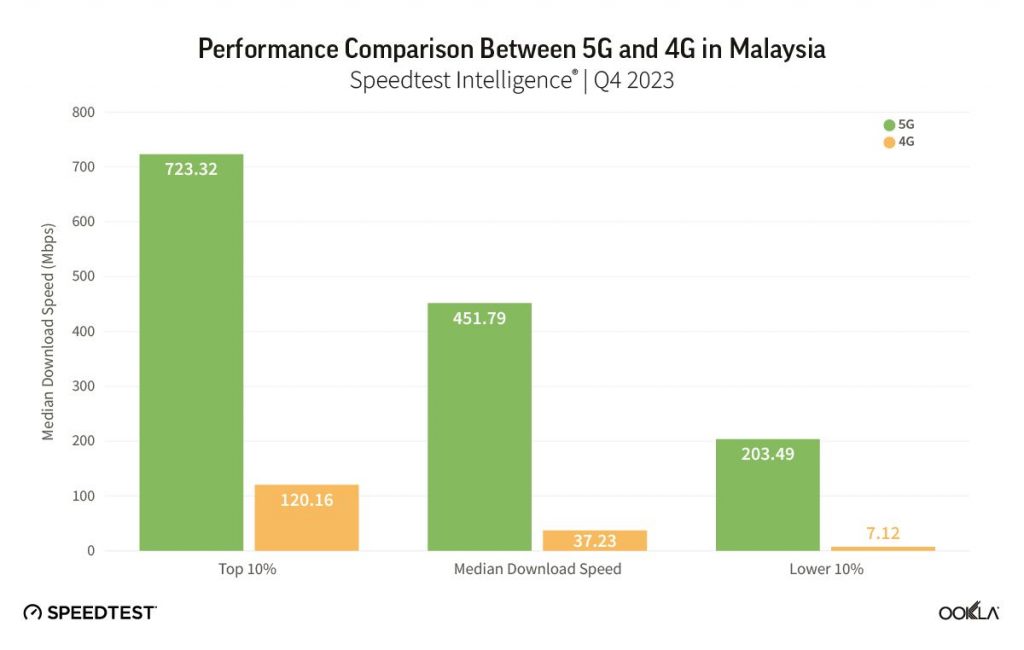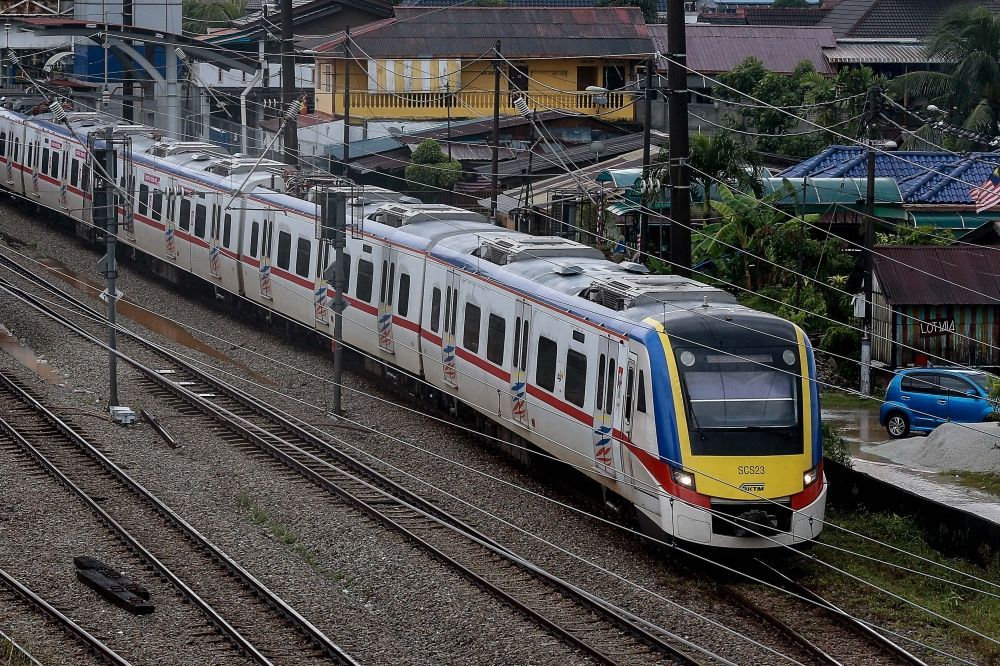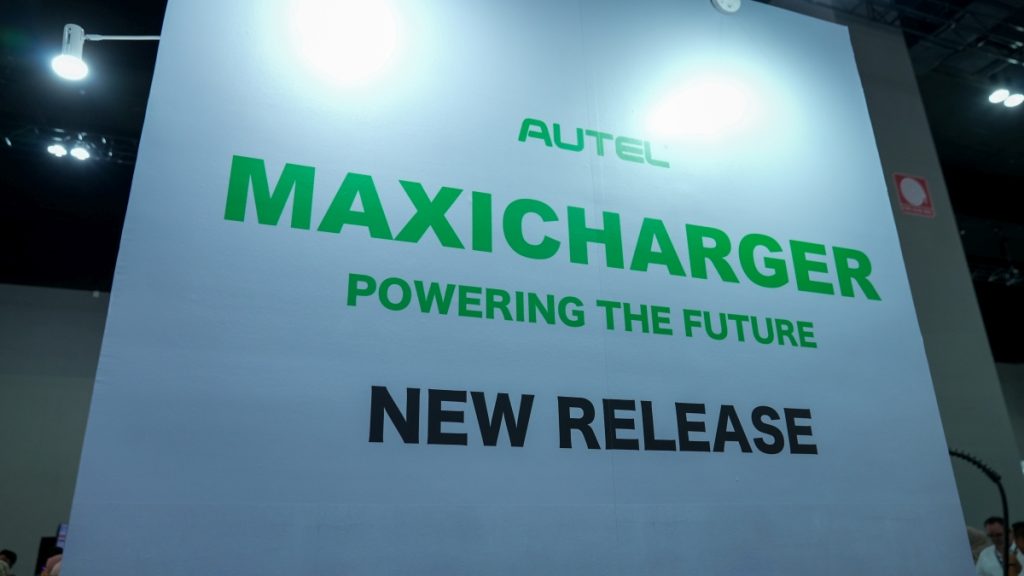Ookla has released an article which looks at the current state of 5G in Malaysia under the Single Wholesale Network model. Based on their assessment, Malaysians with the slowest 5G download speeds enjoy at least 5X faster than the median download speeds on 4G networks. On top of that, it iterated that Malaysia continues to lead in Southeast Asia when it comes to 5G performance.
The worst of 5G outperforms the best of 4G
According to Ookla, Speedtest Intelligence data captured in Q4 2023 show that Malaysian users in the bottom 10% of 5G download speeds clocked in 203.49Mbps. That represents a big uplift of 5.46x compared to the Median 4G download speed of 37.23Mbps or an uplift of 1.69x compared to the top 10% of 4G download speeds of 120.16Mbps.
In the same period, the Median 5G download speed recorded is 451.79Mbps while the Top 10% of users are getting 723.32Mbps. It is worth highlighting that DNB promises to deliver average download speeds of 100Mbps at the cell edge of their network.
Putrajaya recorded 2.5x times increase in median download speeds
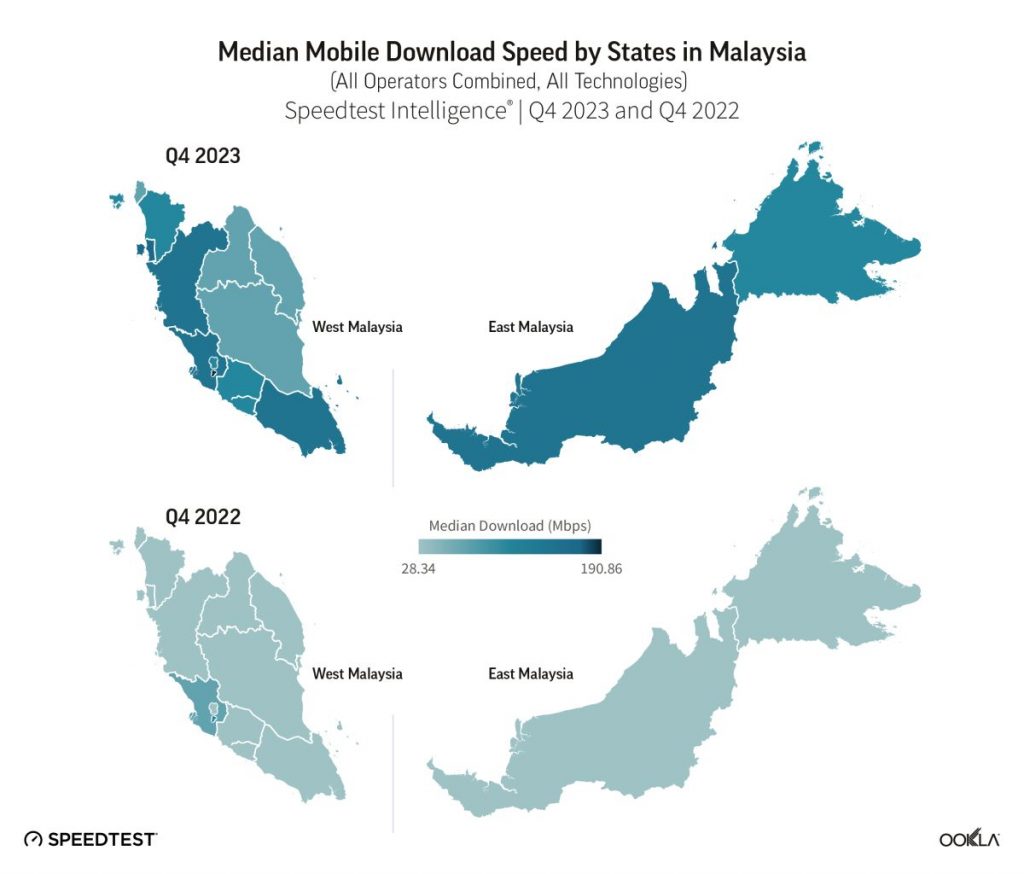
With the rollout of 5G now available on all major telcos in Malaysia, Ookla found that all states in Malaysia have experienced at least 1.45 times increase in overall mobile speeds across all technologies. For example, Kuala Lumpur recorded a median download speed of 37.60Mbps in Q4 2022 and it had increased by 1.6 times to 63.62Mbps in Q4 2023. Meanwhile, Putrajaya recorded a median download speed of 61.24Mbps in Q4 2022 and surged by 2.5 times to 190.86Mbps in Q4 2023, making it the fastest in the country.
Malaysia’s 5G is faster than Singapore, Thailand and the Philippines
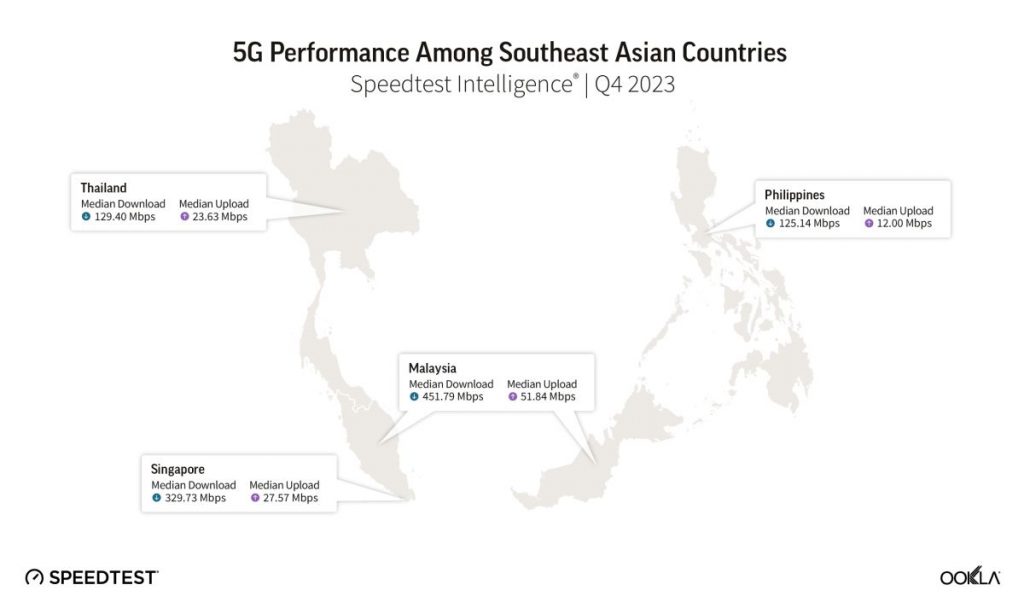
While Malaysia launched 5G later than its peers, Ookla says Malaysia continues to outperform other Southeast Asian countries such as Singapore, Thailand and the Philippines in 5G network performance despite the expected decrease in performance due to more user adoption and congestion. For Q4 2023, Malaysia recorded a median 5G download speed of 451.79Mbps and a median 5G upload speed of 51.84Mbps.
As a comparison, Singapore recorded a median 5G download speed of 329.73Mbps and a median 5G upload speed of 27.57Mbps. Meanwhile, the Philippines recorded a median 5G download speed of 129.4Mbps and a median 5G upload speed of 23.63Mbps.
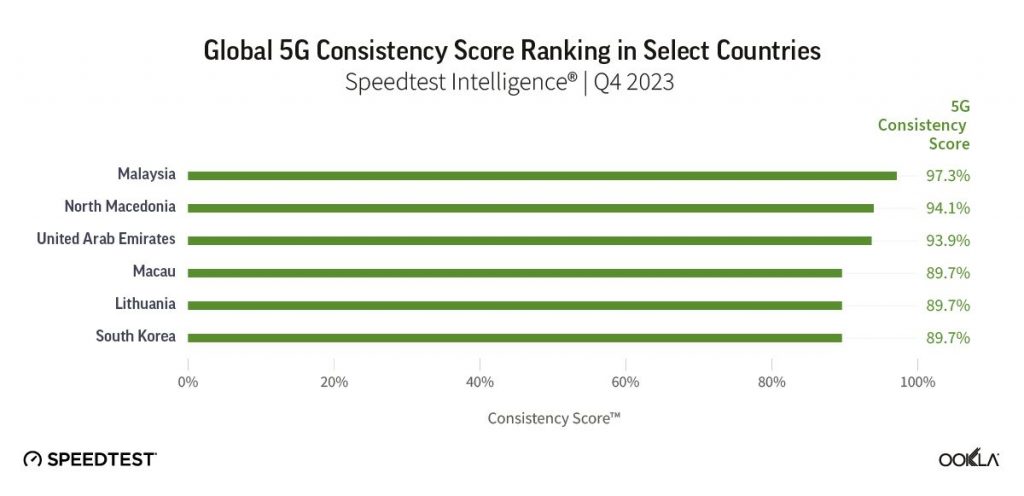
As revealed during Mobile World Congress 2024, Malaysia is ranked number one for 5G consistency globally with a Consistency Score of 97.3%. According to Ookla, the Consistency Score reflects the percentage of a provider’s data samples that meet the minimum thresholds for download and upload speeds.
As shared by Ookla representatives, the measurement is based on Speedtests conducted in Q4 2023 by Malaysian users on the 5G network covering multiple telcos. They added that each test must achieved a minimum of 25Mbps download and 3Mbps upload, and the more consistent the test results are, the higher the score it gets. As a result, Malaysia achieved a score of 97.27%, followed by North Macedonia at 94.06% and United Arab Emirates at 93.88%.
It should be mentioned that the 25Mbps threshold was used based on the US Federal Communications Commission (FCC)’s definition of broadband. Just recently, the FCC announced a revision which raised the broadband benchmark to 100Mbps for downloads and 20Mbps for uploads.
Malaysia’s 5G availability lags behind Singapore and Thailand
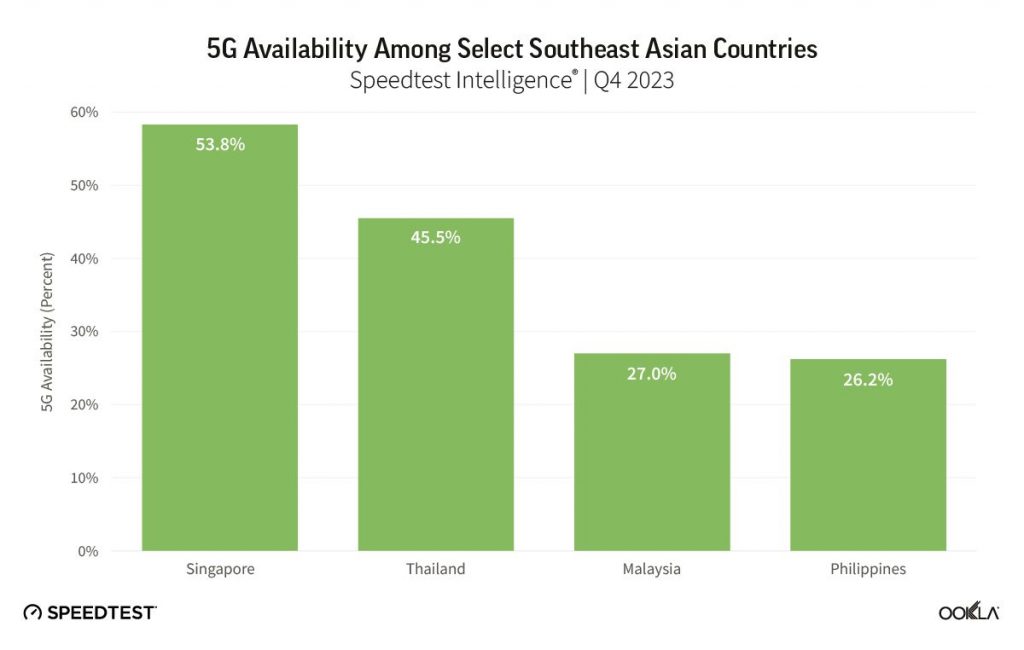
Despite having great consistency and median 5G speeds, Malaysia still lags behind Singapore and Thailand when it comes to 5G availability. Malaysia’s 5G availability has increased from 21.0% in Q1 to 27.0% in Q4 2023, however, it is still behind Thailand which recorded 5G availability of 45.5% and Singapore at 53.8%.
In Ookla’s definition, 5G availability measures the proportion of speed test users with 5G-capable handsets, who spend the majority of their time connected to 5G networks. Ookla said despite the impressive performance of the 5G network, DNB and operators must further improve 5G adoption in the country. According to Communications Minister, Fahmi Fadzil, Malaysia has achieved a 5G adoption rate of 29.9% as of January 2024 and DNB has achieved its 80% 5G population coverage by the end of December 2023.
In May 2023, the Malaysian government announced a 5G policy shift from a Single Wholesale Network to a Dual Network model to establish redundancy for 5G infrastructure. Despite DNB achieving its expedited coverage target, there are still no clear signs of a second 5G network. According to Fahmi, the rollout for the second network is delayed as they are still waiting for the formation of the DNB board since the five major telcos signed their share subscription agreement to acquire an accumulative 70% stake in the 5G network.
[ SOURCE ]

